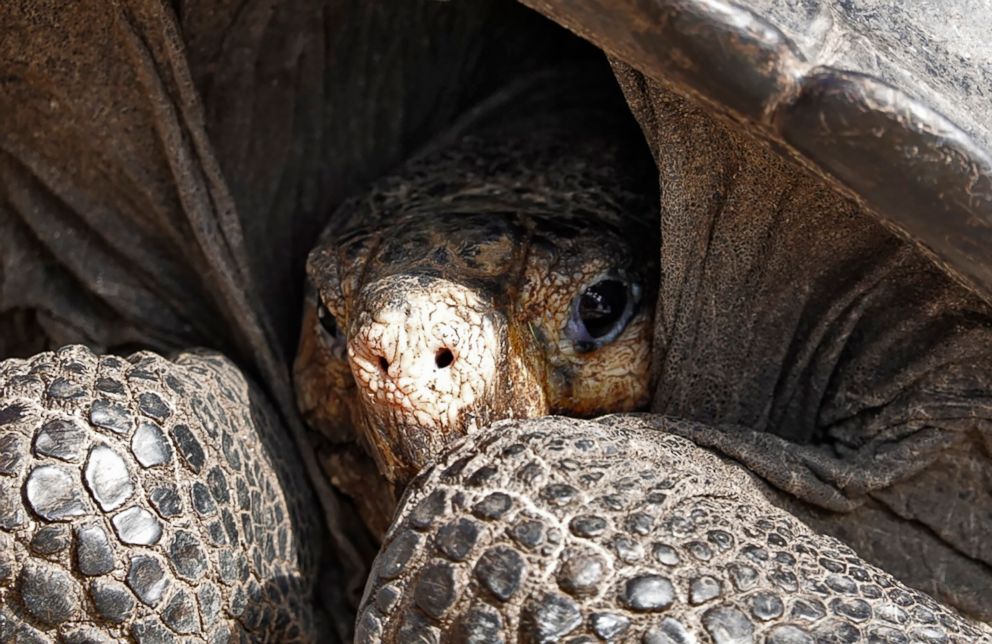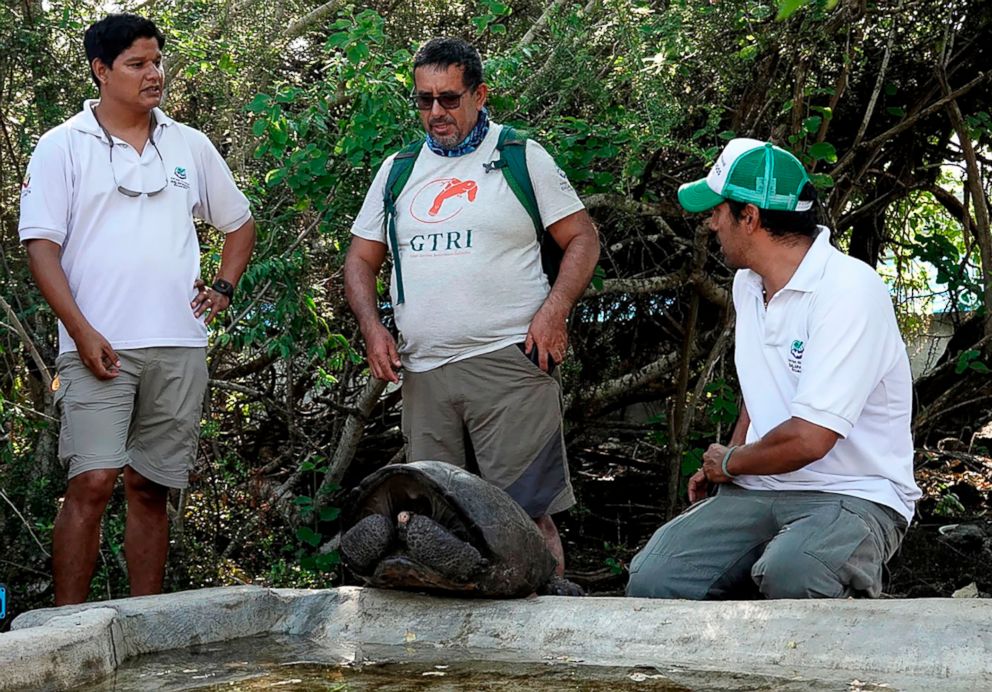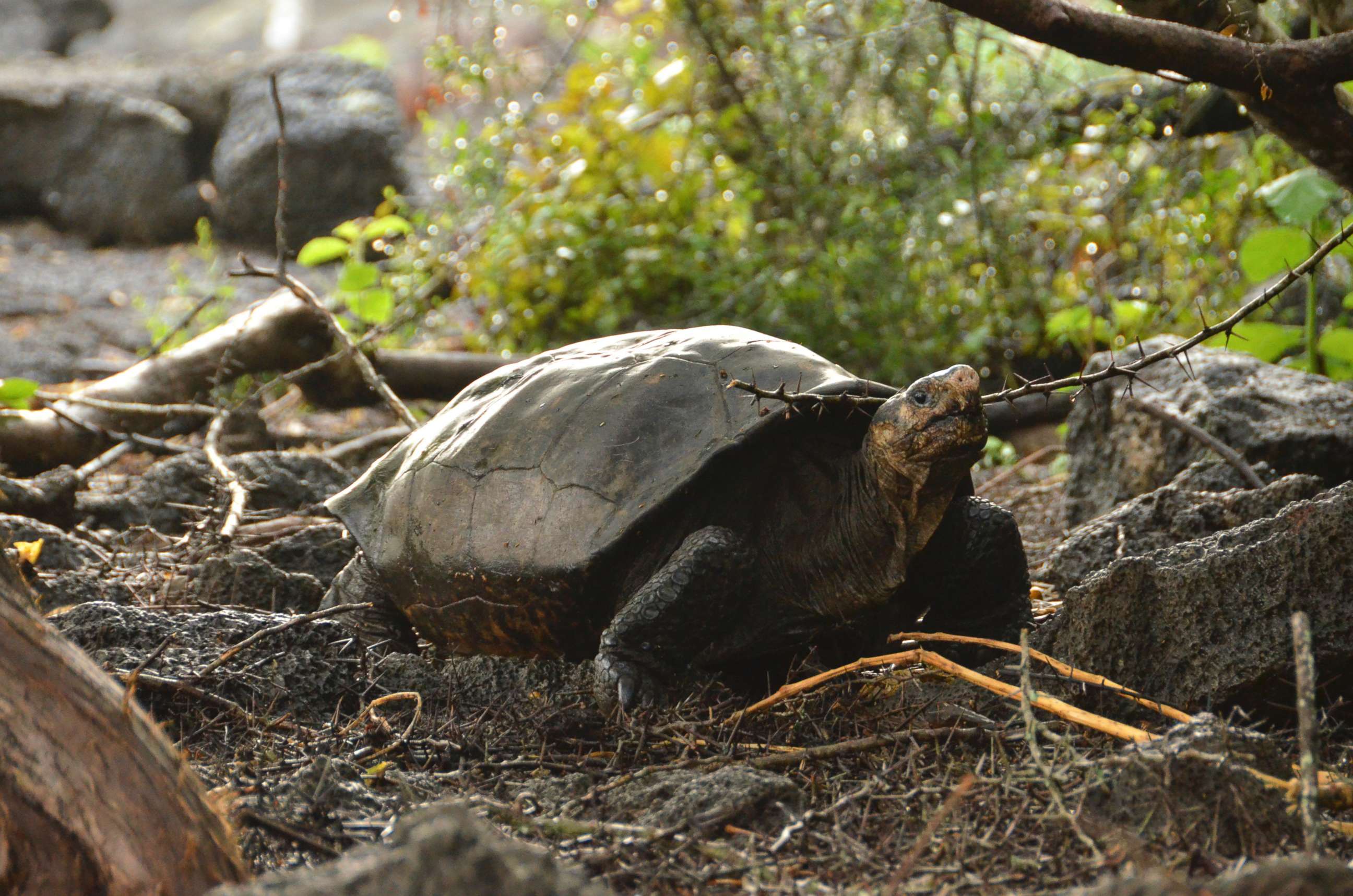Tortoise thought to be extinct for more than 100 years discovered in Galapagos Islands
The female Chelonoidis phantasticus was located on a remote island.
A species of tortoise thought by scientists to be extinct for more than 100 years were actually hiding in plain sight on a remote Galapagos island.
The Galapagos Conservancy, a Fairfax, Virginia-based organization dedicated to the long-term protection of the Galapagos Islands, wrote on Twitter Wednesday that one of its employees had just returned from Fernandina Island, where he spotted a female adult Chelonoidis phantasticus, describing the discovery as a "monumental finding."
Before the female was found, the species of tortoise was believed to have been "lost" for 112 years, according to The Search for Lost Species. The tortoise has only ever been found on Fernandina Island, the "youngest and least-explored of the Galapagos Islands," according to the organization.
But, the website alluded to the chance that the species may be "holding on," citing tortoise droppings that were found during an expedition in 1964 and a fly-over of the island in 2009, where people on board "reported sightings of something tortoise-like from the air."


The tortoise, also known has the Fernandina Giant Tortoise, was found Sunday during a joint expedition with the Galapagos National Park and the Galapagos Conservancy, The Associated Press reported. She is believed to be more than 100 years old and was taken to a breeding center for giant tortoises on Santa Cruz Island, according to AP.
Experts believe more species may be on the island due to findings of tracks and scat.

The only other living member of the species was found in 1906, according to the International Union for Conservation, the AP reported.




